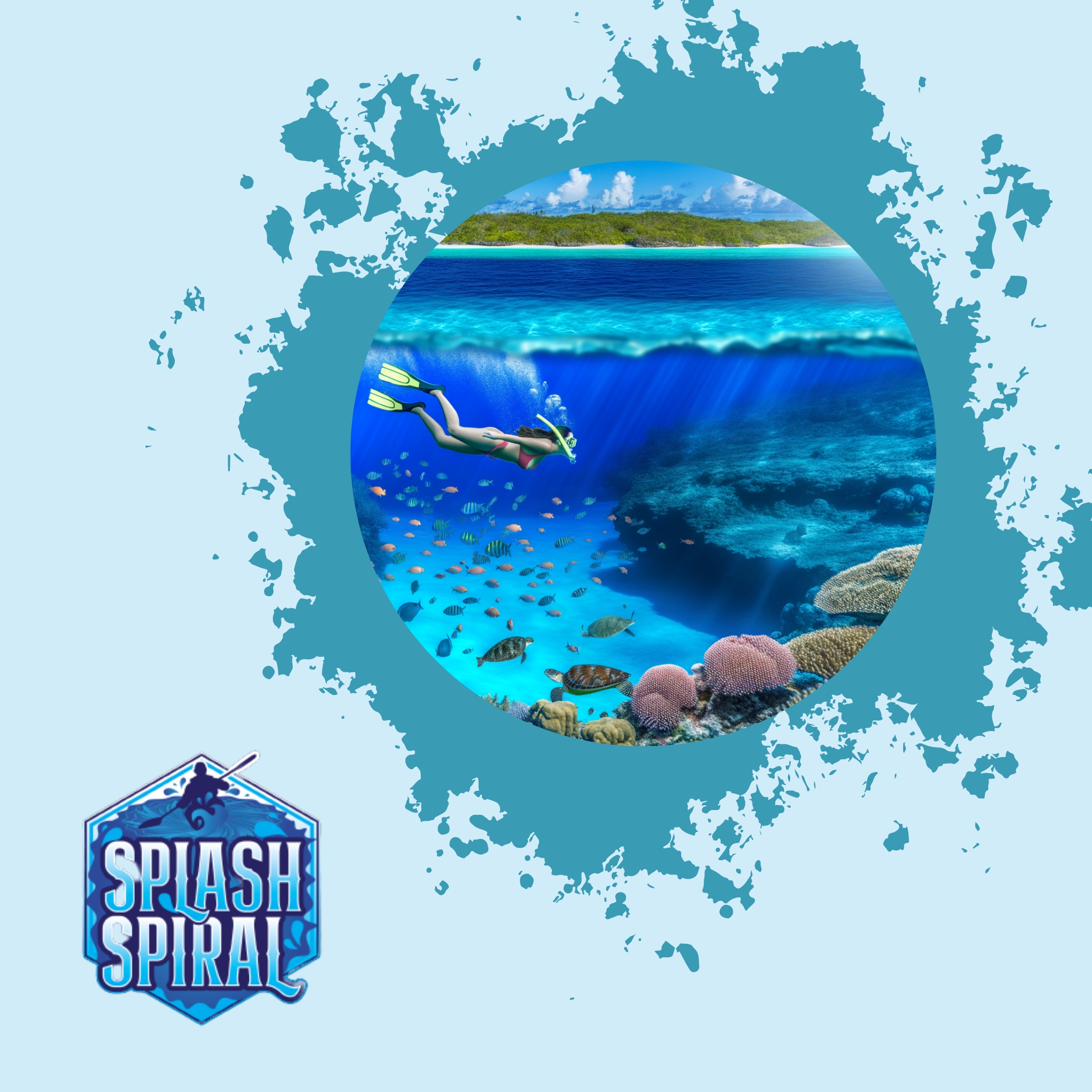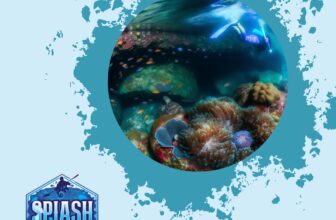
Imagine floating over a sprawling underwater landscape, illuminated only by your flashlight and the soft glow of a million stars above. Night snorkeling in the Great Barrier Reef offers this unique experience, where the underwater realm unveils a different side of its beauty. For those eager to adventure beyond the usual daylight snorkeling, night tours provide the perfect blend of serene exploration and thrilling discovery.
Introduction to Night Snorkeling
Night snorkeling is the art of exploring underwater realms after the sun has dipped below the horizon, offering an entirely different perspective than daylight adventures. In the Great Barrier Reef, a worldwide ecological treasure, night snorkeling transforms this experience from a bustling daytime parade of colors to a mysterious nighttime marvel illuminated by the subtle glow of your flashlight. This shift introduces you to the reef’s nocturnal inhabitants, which remain hidden during daylight hours, and lets you witness extraordinary marine behaviors under a canopy of stars.
What makes night snorkeling at the Great Barrier Reef truly stand out is the contrast it provides against its daytime counterpart. As many fish tuck themselves away to sleep, the reef becomes a theater for creatures like the mesmerizing bioluminescent organisms, nocturnal predators, and the vibrant camouflage of other creatures coming to life under the cover of darkness. The tranquility of the night mixed with the anticipation of unique encounters creates a thrilling yet peaceful exploration of marine life.
Who can join these intriguing night snorkeling tours? Generally, they are well-suited for snorkelers of all levels, including beginners, though some comfort with basic snorkeling skills and swimming is recommended. Most tours set a minimum age limit, typically around 12 years, to ensure safety and enjoyment for all participants. Before heading out, it's a good idea to be familiar with nighttime snorkeling techniques and to understand any specific requirements of the tour provider, such as mandatory safety briefings and equipment checks. With a sense of readiness and wonder, night snorkeling can be an enriching addition to your underwater exploration repertoire.
Preparation for Night Snorkeling
To make the most of your night snorkeling adventure, it's crucial to come prepared with the right gear. Essentials include a high-powered waterproof flashlight; look for options with at least 200 lumens to effectively illuminate the reef's vibrant colors and hidden corners. Make sure it's comfortably strapped to your wrist for hands-free use when needed. In terms of safety equipment, a high-quality snorkeling mask with an adjustable strap ensures clear vision, while a float vest can offer added security, especially for beginners who might need some buoyancy.
Adjusting from day to night snorkeling requires a few mindset shifts. Remember, the world below the water's surface transforms under moonlight. Take a moment to orient yourself with the darkness by scoping out the area at dusk, which can help you adjust to the diminished visibility once you're underwater. Practicing your breathing technique beforehand can also be beneficial. Slow, rhythmic breaths not only conserve energy but help relax your body into the calming experience of night snorkeling.
Choosing the right tour provider is key. Reputable operators offer briefings that cover safety protocols and what to expect once you dip under the surface. They will guide you on the sights to anticipate, as well as any hand signals and group navigation rules. A good start is checking out options listed on great barrier reef resorts with top snorkeling experiences. Expect concise orientation sessions and an emphasis on safety during your night tour.
Ultimately, preparation enhances not only your safety but also your enjoyment of this luminous marine spectacle at the Great Barrier Reef.
Exploring the Great Barrier Reef at Night
Diving into the Great Barrier Reef after dark unveils a whole new world beneath the surface. Forget the vibrant daylight hues; the nocturnal scene is cast in softer, mysterious tones. Your flashlight carves paths through the dark water, creating a calm yet electric feel. The amplified silence means every sound—from the swish of your fins to the faint clicks of sea creatures—resonates deeply.
Nighttime Transformation
At night, the reef undergoes a significant transformation:
- Nocturnal Life Emerges: The bustling day crowd of fish retreats, making way for a host of nocturnal creatures.
- Slower Flow: The flow of water appears slower, and the movements of creatures more deliberate.
- Bioluminescent Magic: The reef is illuminated by bioluminescent organisms, resembling stars scattered across the sky.
- Coral Feeding: Coral polyps extend their feathery tentacles to feed, revealing their fluorescence under your torch—a rare sight during the day.
An Unforgettable Atmosphere
The atmosphere is drenched in the deep blues and greens of the night sea, offering:
- A Unique Sense of Exploration: The night instills a sense of exploration unlike any daylight experience.
- Secrets Revealed: It's as if the reef holds secrets it unveils only after dusk.
- Intentional Movements: The shift in light and rhythm makes every movement intentional, every encounter more meaningful.
Night snorkeling here is not just about observing; it's about experiencing the reef as part of its after-hours chorus—a privilege granted only to those who dare take the plunge.
Spotting Marine Life: Nocturnal Creatures and Behaviors
Night snorkeling transforms the Great Barrier Reef into a theater of activity, featuring a cast of creatures you might miss during the day. At night, many marine species that hide from the sunlight or predators emerge, offering snorkelers a rare glimpse into their lives. Prepare to meet the reef's night shift: creatures like the enigmatic cuttlefish, which change colors and patterns in the dark, or the elusive octopus, known for its remarkable camouflage skills and curious nature.
You'll also encounter the radiant glow of bio-luminescent organisms, tiny though they are, lighting up the darkness with mesmerizing displays. The reef's coral polyps themselves, often appearing dormant during the day, come alive at night, extending their tentacles to feed, creating a living tapestry of motion and color.
Nighttime reveals fascinating behaviors too. Parrotfish envelop themselves in a cocoon of mucus, protecting them from predators, while reef sharks, more active after dark, glide silently through the water in search of prey. Observing these behaviors highlights the dynamism of the reef ecosystem.
In the realm of night snorkeling, the usual suspects get a supporting role while the nocturnal stars steal the show. Beginners can enjoy the thrill of seeing a side of the reef that, until sunset, remained hidden. With patience and a keen eye, this window into the marine night offers revelations that keep even seasoned snorkelers coming back for more.
Safety Tips for Night Snorkeling
Night snorkeling can feel like stepping into another world. While it's undoubtedly exciting, safety is key to ensuring an unforgettable experience for all the right reasons. Here’s what you need to know:
Stay with Your Group
- Stick Together: The darkness can make it tricky to maintain your bearings. Staying close to others ensures you’re not left adrift.
- Use Hand Signals: Familiarize yourself with hand signals used in water. They’re your lifeline for effective communication when visibility is low.
Follow Guide Instructions
- Listen to Your Guide: Before your tour, your guide will brief everyone on essential precautions.
- Trust Their Expertise: Guides know the area well, understand marine life behaviors, and can help you navigate potential obstacles. Follow their instructions closely.
Equip Yourself with the Right Gear
- Underwater Flashlight: A reliable flashlight is essential. Make sure to have a backup to handle unexpected failures.
- Importance of Light: The flashlight not only helps you find your way but also highlights marine life.
- Dress Warmly: Nighttime waters can be chilly. A wetsuit provides both insulation and protection from unforeseen encounters.
Be Aware of Your Surroundings
- Stay Alert: Calm waters can shift, and tides can influence your snorkeling path.
- Signal When in Doubt: If you feel doubt or discomfort, signal your guide immediately.
Enjoy the Experience
By following these safety tips, your night snorkeling adventure can be both secure and fascinating. You'll be able to soak in the wonders of the Great Barrier Reef with peace of mind.
Environmental Awareness and Conservation
Night snorkeling offers a novel way to interact with marine life, but it’s crucial to approach it with a mindset of respect and conservation. The Great Barrier Reef is a living ecosystem, teeming with delicate coral formations and unique species that are vulnerable to disturbances. As a snorkeler, your presence should be as unobtrusive as possible. It’s important to avoid touching or stepping on the coral, as even slight contact can cause significant damage. Similarly, refrain from chasing or harassing marine creatures; their natural behaviors become visible when undisturbed.
This nighttime adventure should also promote a deeper appreciation for the fragility and beauty of marine environments. Snorkeling under the stars can reinforce the importance of preserving our oceans. Such tours can serve as eye-opening experiences, highlighting how human actions affect ocean health. By becoming more aware of these impacts, snorkelers can become ambassadors for conservation.
For those interested in learning more about responsible snorkeling and marine conservation, there are numerous resources available. Organizations dedicated to marine preservation provide valuable insights and strategies to ensure that future generations can also enjoy these underwater wonders. You might find useful information through resources on snorkeling day trips and marine parks. Engaging with these resources helps sustain the magic of night snorkeling while safeguarding the ecosystem you’re exploring.
Frequently Asked Questions
What is the age limit for night snorkeling tours?
Most tour providers allow participants aged 12 and above, but it's always best to check with the specific tour operator. Younger children may be allowed if they have strong swimming skills and snorkeling experience, accompanied by a responsible adult.
What snorkeling skills do I need for a night tour?
Basic swimming and snorkeling skills are sufficient for most night tours. You should feel comfortable in the water while using a mask, snorkel, and fins. Practice during the day can build confidence for a night tour. Guides will provide briefings, so listen and ask questions if unsure.
When is the best time of year for night snorkeling at the Great Barrier Reef?
Night snorkeling can be done year-round, but the best conditions typically occur from June to October. During these cooler months, the water is clearer, and you can spot more marine life. Always check weather conditions as they can affect visibility and tour availability.
How can beginners overcome hesitations about night snorkeling?
Start by joining a reputable tour with experienced guides who provide safety briefings and stay close during the tour. Consider taking a daytime tour first to familiarize yourself with the reef environment. Lastly, remember that anxiety is normal; focus on the excitement of discovering a new side of marine life.
Night snorkeling in the Great Barrier Reef is more than just a dive into an ocean wonderland; it's an invitation to explore an unseen world that awakens when the sun sets. As you navigate the gentle waves under the cover of darkness, the benefits and wonders of this experience come alive. The silence of the night amplifies the sound of bubbles and the occasional sweeping movements of marine creatures. Colors emerge vividly under your flashlight, offering new perspectives of coral formations and marine life that daytime hides in plain sight.
For anyone contemplating stepping out of their comfort zone, night snorkeling offers a magnificent opportunity. It allows you to witness the mysterious behavior of nocturnal creatures and the enchantment of a living reef that is vibrant and bustling even after dusk. It's a call to the adventurous spirit—a chance to engage with marine life under a fresh, fascinating light.
We encourage you to embrace this unique experience and venture into night snorkeling to deepen your appreciation for the underwater world. And, as you prepare to explore, consider the myriad of diving and snorkeling options available to further fuel your aquatic adventures. Discover more about these opportunities at general snorkeling and diving information.







